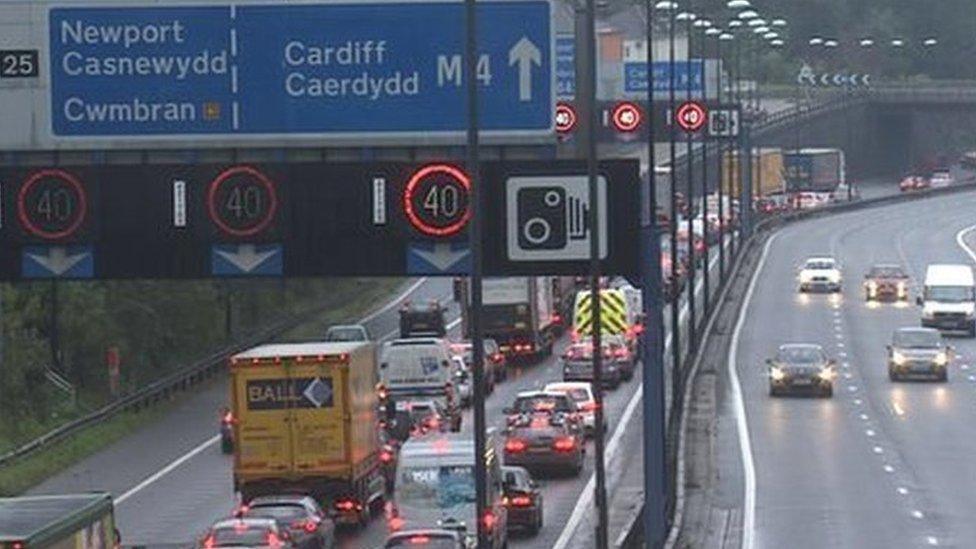Call to spend £1.4bn M4 relief road cash on public transport
- Published
- comments
This video reveals the possible route of the M4 relief road
Wales has to decide between a £1.4bn M4 relief road or better public transport, a new report has warned.
Future Generations Commissioner Sophie Howe said the 14 mile (23km) route around Newport will not cut congestion and is a "20th Century solution to a 21st Century problem".
She said money would be better spent on rail and bus links, cycle routes and the South Wales Metro's final phases.
Ministers said they are committed to improving public transport in Wales.
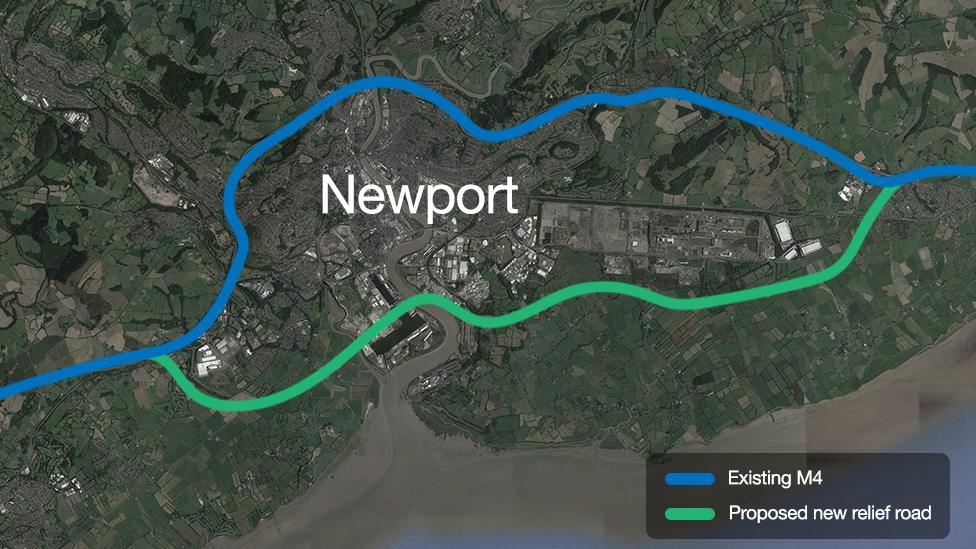
This map shows the route of the proposed M4 Relief Road - the Welsh Government-backed "black route" is in green
Business leaders have argued that congestion around the Brynglas tunnels in Newport is strangling the local economy, which the Welsh Government said is a "pressing problem demanding a solution".
A public inquiry into the planned relief road ended in March after 83 days and is due to report back soon.
Sophie Howe said more roads was not the answer to congestion

Other stories you might be interested in:

Ms Howe's role is as a guardian for future generations and she has a legal duty to advise ministers on the long term impact of Welsh Government projects.
She has been a major critic of the proposals and wants "further and faster" public transport improvements which make people healthier, reduce income inequalities, noise and air pollution and help cut carbon.
Ms Howe believes these measures could be achieved for a fraction of the cost of the proposed new motorway.
Now her office has produced this report, external in a partnership which includes the University of the West of England, the cycling charity Sustrans and the New Economics Foundation think tank.
It suggests:
The proposed relief road - known as the "black route" - will lead to more motorway trips. It estimates 42,000 extra vehicles a day by 2037 - with the M4 just as congested within a few years. It cites examples like the controversial Newbury by-pass, external, which opened 20 years ago.
40% of traffic using the M4 at Newport is local and the Welsh Government has underestimated the impact of easing congestion from public transport alternatives.
Journey time reductions would be limited and asks "what price are we prepared to pay" for 2.5 to five minute savings in journey times?
Around a quarter of homes have no car and the most vulnerable groups - the elderly, children and those on low income - would benefit from better public transport, while they are more likely to suffer from air and noise pollution.
"There is a huge risk in investing all of Wales' borrowing capacity in an old solution, leaving us ill-prepared to respond flexibly as technology and society changes," said Ms Howe.
It is more than 50 years since the M4 was opened and a £300m relief road plan was first unveiled in 1991 but was eventually shelved.
Ms Howe said the world had changed since the relief road was first proposed and given that further changes are difficult to predict, transport decisions needed to be "visionary and flexible".

Public transport needs to be flexible
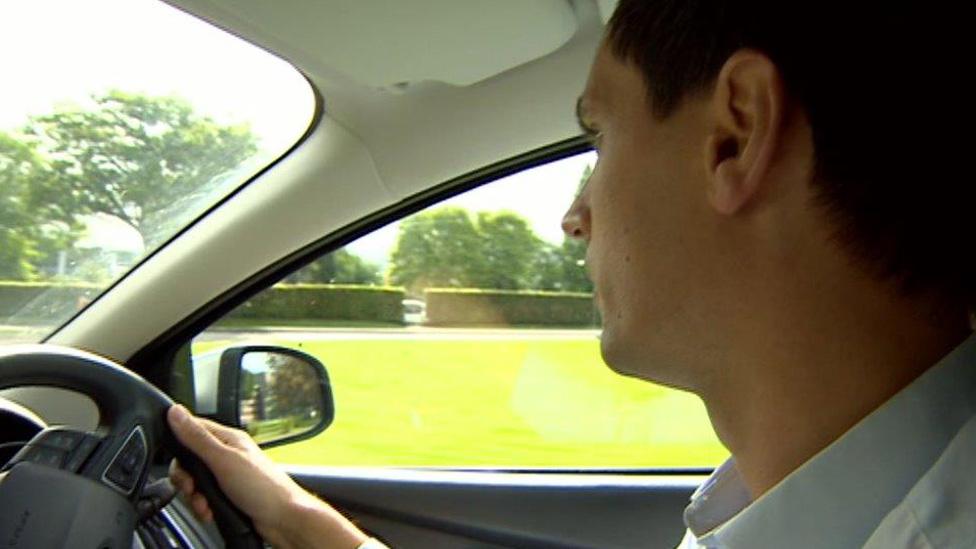
Matt Steel car shares with his wife to save money
Matt Steel and his wife commute by car to work together in Newport from St Mellons in Cardiff - and they bring their young son to the office creche. The six mile (9.6km) journey usually takes 20 minutes but on a bad day it can take an hour or even 90 minutes on the return home.
"Ideally, I'd love to be able to ride the bike - it's good for me and the environment," he said.
"But still they don't feel the safest roads approaching the office to cycle on. We'd love to use public transport - a bus or a train if possible - but we don't feel at the moment it provides the flexibility as a family to bring our son to work and return home afterwards.
"More frequent buses are important and living and working across two local authority areas it might take perhaps take two or three buses to get here."

With the huge amount of public funding involved, the report said it was important that this money was "working as hard as possible" and suggests alternative uses:
Better rail links, a link-and-ride bus service at points between Monmouth and Newport, express commuter coaches linking Bristol, Newport and Cardiff - cost £460m
Active travel routes like walking and cycling across Newport, Monmouthshire and Cardiff - £118m.
Full funding for the final phases of the South Wales Metro - which could potentially be up to £1bn in addition to £738m already earmarked for the first phases to 2023.
M4 improvements such as smart motorway technology - which already manages traffic on the M42; limited entry to the motorway at some junctions at certain times; lanes for buses and those car-sharing; 10 more rail freight journeys a day to reduce lorries through the Brynglas tunnels

CBI Wales, which represents thousands of businesses, said it agreed with Ms Howe's calls for improvements to public transport.
However, director Ian Price said businesses had been "crying out" for a relief road for more than 10 years.
"The M4 is responsible for two-thirds of our national GDP and a relief road is projected to return to the Welsh economy £2 for every £1 invested," he added.
"We must all await the outcome of the official public inquiry into the M4 which took evidence from a long list of stakeholders."
That sentiment was also echoed by the South Wales Chamber of Commerce.
Chief executive Heather Myers said: "There doesn't seem to be any hard proposals, just idealistic views. These are not solutions to the problems Welsh businesses are facing right now, every day."
The Welsh Government said the public inquiry had provided the opportunity for everyone, including the FGC, to be involved in what would be a significant infrastructure investment for Wales.
"We shortly expect to receive the independent inspectors report which, along with the committed Senedd debate and vote, will inform the final decision-making on whether the proposed M4 project, in collaboration with the South Wales Metro, provides the long-term solution to the problems on this gateway to Wales," said a spokeswoman.
"Our commitment to improving public transport across the whole of Wales is clearly visible in the launch of our new rail services contract next month which will deliver significant improvements including more and better trains for passengers across Wales and the Borders, and that from 2023 an £800m investment will ensure 95% of journeys are on new trains."
- Published10 October 2019
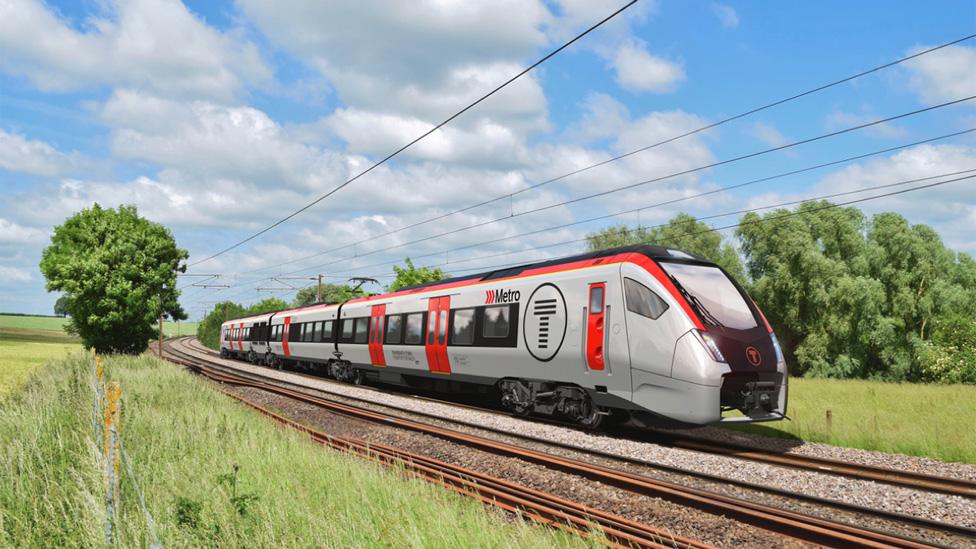
- Published28 March 2018
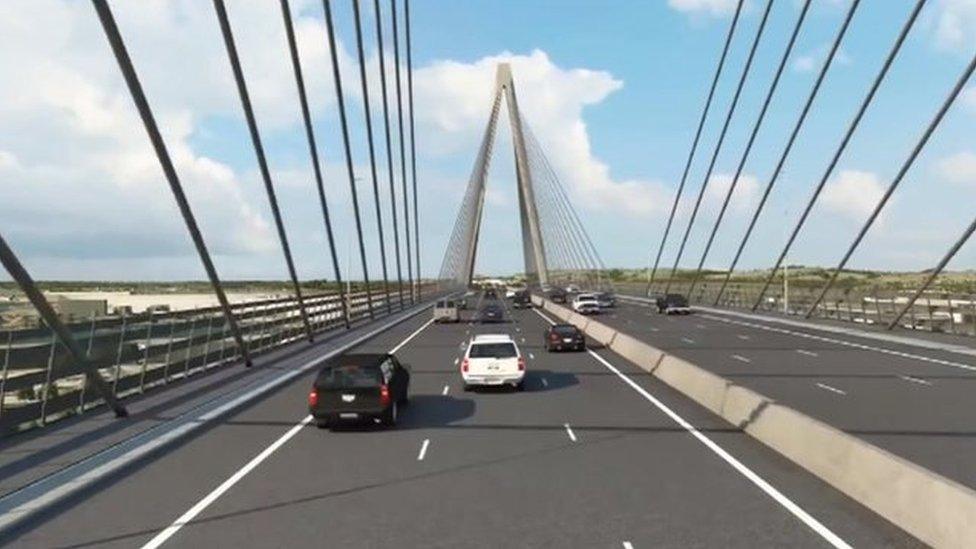
- Published28 March 2018
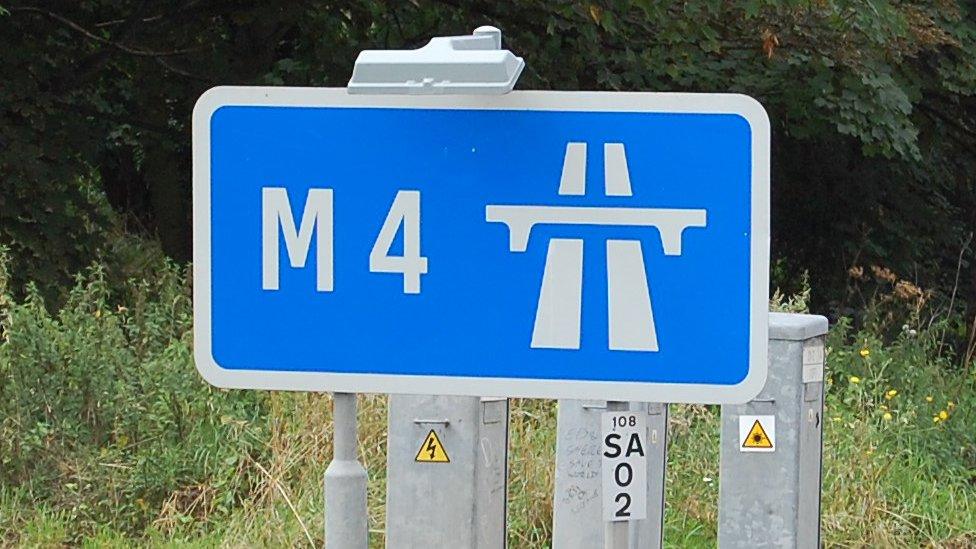
- Published20 December 2017
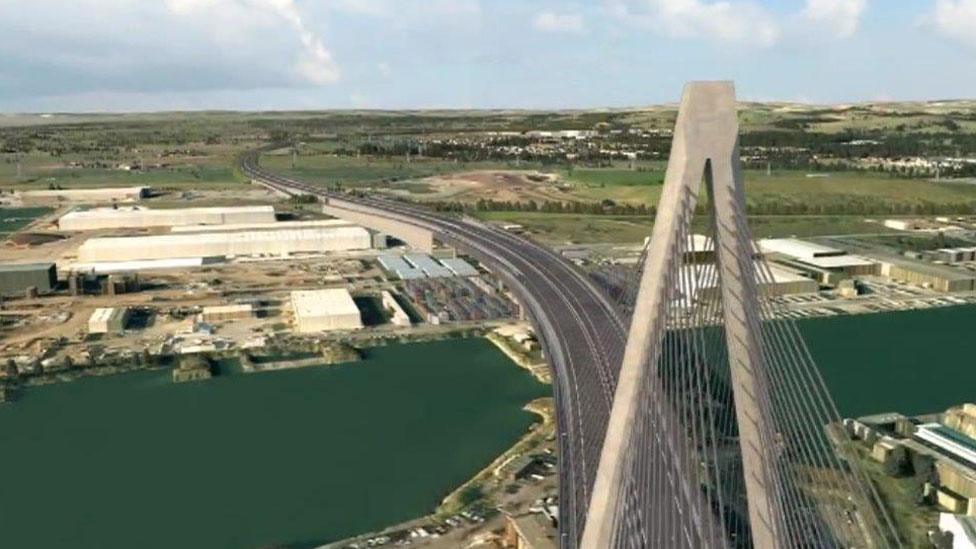
- Published1 March 2017
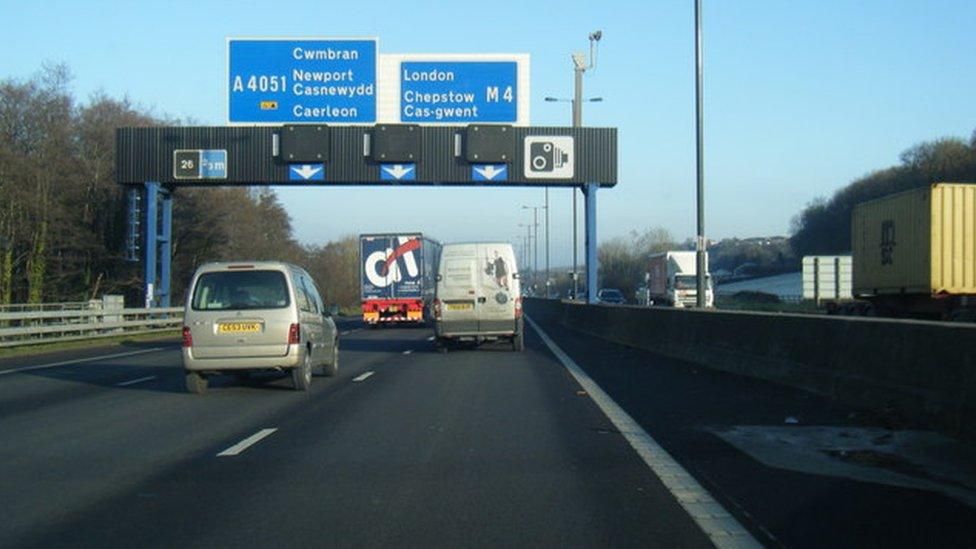
- Published23 May 2016
